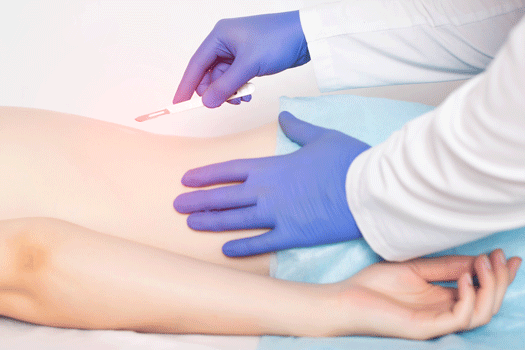
With lower back pain, leg discomfort, and other symptoms related to a herniated disc, a discectomy is the most common lumbar spinal surgery performed today. It is generally considered a safe procedure for many patients who are not responding well to nonsurgical treatment options. Part of the reason is because of how this type of surgery is typically performed. This article explains why this approach to disc surgery is usually considered a safe surgery.
Doctors Can Minimize Anesthesia Risks
A discectomy is usually performed under general anesthesia. For this reason, the standard risks associated with anesthesia for any type of surgery apply. However, these are risks that can be minimized if you take some steps prior to your scheduled procedure, such as:
• Disclosing all medications you are currently taking
• Mentioning any underlying health conditions you may have
• Finding out if any family members have had negative reactions to anesthesia
The anesthesiologist uses these details to make the necessary adjustments to the medications used for the general anesthesia. Special precautions can also be taken as necessary to increase patient safety while sedated.
Surgeons Often Make Smaller Incisions
The main reason a discectomy is generally considered a safe surgery today is because of the techniques typically used to perform it. With a microdiscectomy, the surgeon makes smaller incisions and uses specialized instruments that minimize tissue disturbance. This is similar to a discectomy that is performed endoscopically.
Even with a traditional or open discectomy, surgical techniques have improved to the point where the procedure can usually be done with fewer risks than what was once common. When done using smaller incisions, there is also not as much disturbance to nearby structures or healthy nerves, which further increases patient safety.
Doctors Try to Save as Much Disc Material as Possible
Regardless of how the discectomy procedure is performed, the surgeon typically only removes disc fragments instead of the entire affected disc. This makes the procedure safer for many patients, since spinal stability is maintained and preserved. Removing a limited portion of disc material also eliminates the risks that go along with having a secondary procedure—in this case, fusion surgery. Instead, the issue with the disc and nerve is resolved with a single procedure. If the entire disc does need to be removed, fusion surgery may still be avoided by replacing the damaged disc with an artificial one.
Preparing for a Discectomy Can Make It a Safer Procedure
A discectomy also tends to be safer when the patient makes efforts to properly prepare for the procedure as much as possible. For some patients, reducing risks associated with any type of spinal surgery may involve:
• Stopping smoking a few weeks or more prior to surgery
• Managing any underlying health issues, such as diabetes or high blood pressure
• Temporarily not taking certain medications that may increase the risk of bleeding
• Making lifestyle improvements with diet, posture, and exercise based on doctor recommendations
Even though discectomy surgery is a common and generally quite successful procedure, a hole is frequently left in the outer wall of the disc. In fact, patients with these large holes in their discs are more than twice as likely to reinjure themselves by having what is known as a reherniation. These reherniations often require additional surgery or even fusions. Fortunately, there is a new treatment specifically designed to close the large holes that are often left in spinal discs after discectomy surgery. Barricaid is a bone-anchored device proven to reduce reherniations, and 95 percent of Barricaid patients did not undergo a reoperation due to reherniation in a 2-year study timeframe. This treatment is done immediately following the discectomy—during the same operation—and does not require any additional incisions or time in the hospital.
If you have any questions about the Barricaid treatment or how to get access to Barricaid, ask your doctor or contact us at 844-288-7474.
For full benefit/risk information, please visit: https://www.barricaid.com/instructions.


Comments